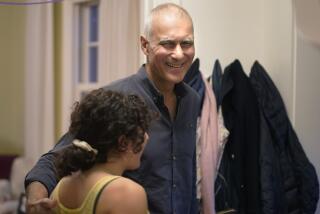Insights into DNA repair mechanism win Lasker Award
- Share via
A duo of geneticists from Harvard Medical School and Rutgers University has been awarded the 2015 Albert Lasker Award in recognition of their work illuminating the process by which living organisms detect damage to DNA and act to repair it.
The Lasker Foundation announced Monday it will bestow its award for basic medical research on geneticist Stephen J. Elledge of Harvard Medical School and Brigham and Women’s Hospital and microbiologist Evelyn M. Witkin of Rutgers University.
Working first with bacteria and, progressively, with higher organisms, Elledge and Witkin explored how genetic mutations occur, and why they don’t routinely wreak the kind of havoc seen, for instance, in cancers. In doing so, they have shed light not only on the stability of our genes, but on what happens when, in cancers and other genetic diseases, that stability is overwhelmed by error.
Working separately, the two scientists showed that as cells divide, DNA often fails to replicate itself faithfully, nudged by faulty cellular processes or toxic exposures, including radiation.
Far less often, though, are those mutations in DNA carried forward. Elledge and Witkin described a complex signaling process by which most cells affected by DNA mutations get the message that an error has occurred, and must be repaired before genetic insults accumulate.
Now known as the DNA damage response, this network helps keep the genome stable and suppresses the development of tumors or other cellular catastrophes. The power of this signaling system can be seen in individuals are born with mutations in this pathway, many of whom have severe developmental defects.
Among the diseases associated with a faulty DNA damage response system are Fanconi’s anemia, ataxia telangiectasia, Bloom syndrome and xeroderma pigmentosum. BRCA 1 and BRCA 2 gene mutations, which greatly elevate a woman’s likelihood of developing breast or ovarian cancer, can also result from such a defective DNA repair pathway.
When the signaling system is damaged or overwhelmed later in life, the result can be cancer.
Crucial to our understanding of disease, such research findings “remind us all that investing in biological sciences and medical research is crucial for our future,” said Claire Pomeroy, president of the Albert and Mary Lasker Foundation, in announcing the award.
Follow me on Twitter @LATMelissaHealy and “like” Los Angeles Times Science & Health on Facebook.







